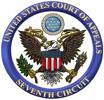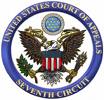Seventh Circuit Week in Review, Part II: Attempted Enticement of a Minor
 As I mentioned in the first installment of “Week in Review,” the Seventh Circuit decided two cases this past week arising from convictions for attempted enticement of a minor to engage in sexual activity. As a general matter, one is not guilty of a criminal attempt unless one takes a “substantial step” towards the completion of the intended crime. This is a rather vague standard, and courts have struggled to delineate exactly how far a person must travel down the criminal path in order to become liable for an attempt.
As I mentioned in the first installment of “Week in Review,” the Seventh Circuit decided two cases this past week arising from convictions for attempted enticement of a minor to engage in sexual activity. As a general matter, one is not guilty of a criminal attempt unless one takes a “substantial step” towards the completion of the intended crime. This is a rather vague standard, and courts have struggled to delineate exactly how far a person must travel down the criminal path in order to become liable for an attempt.
Earlier this year, the Seventh Circuit addressed the question in another enticement case, United States v. Gladish, 536 F.3d 646 (7th Cir. 2008). Gladish was caught in an Internet sting. A government agent posing as a fourteen-year-old girl encountered Gladish in an Internet chat room. After engaging in sexually graphic communications, the two “agreed” to have sex, resulting in Gladish’s arrest. However, the Seventh Circuit determined that Gladish’s plan did not proceed far enough to support an attempt conviction: despite the agreement to have sex, there was never any specific time or place determined for the tryst. Without something more than graphic Internet communications and a vague agreement, there was no “substantial step” and, hence, no attempt liability.
The two new opinions, both authored by Judge Wood, elaborate on the meaning of Gladish, but still leave the “substantial step” line more gray than black and white.

